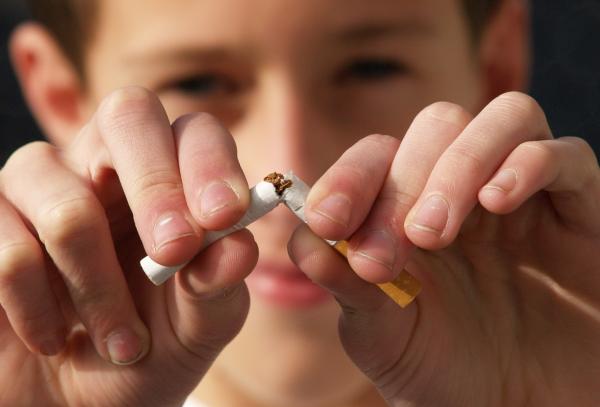Canadian biotech firm Medicago has done the world a great service. As we reported in early March, the company developed and commercialized the world's first plant-based COVID-19 vaccine, a two-dose series that was shown to be both safe and reasonably effective against any of the known SARS-CoV-2 variants. It's a doubly important development because plant-based pharmaceuticals are relatively inexpensive and easy to produce, meaning they could help expand global access to a variety of immunizations and other drugs, including treatments for flu and ebola.
Surely everybody supports such a major public health advance, right? Apparently not the World Health Organization (WHO). As Bloomberg reported last week,
“Medicago Inc.’s Covid-19 vaccine is poised to become the first western shot to be rejected by the World Health Organization, because of the company’s links to cigarette maker Philip Morris International Inc. The Canadian biopharma company’s request for pre-qualification of its Covifenz shot wasn’t accepted, according to the WHO’s guidance document dated March 2. That means the WHO is unlikely to approve the vaccine for emergency use, which would also keep it out of the Covax global vaccine-sharing facility.”
The phrase “virtue signaling” gets thrown around very casually into today's culture wars, but the WHO's pending decision to reject Medicago's request deserves that slur and more: it's shameless moral preening that potentially puts many millions of people at risk. Let's count the absurdities, courtesy of Bloomberg.
“'Due to its connections -- it’s partially owned by Philip Morris -- the process is put on hold,'” Mariangela Simao, WHO’s assistant director-general for drug access, vaccines and pharmaceuticals, said at a media briefing on Wednesday. “'The WHO and the UN have a very strict policy regarding engagement with the tobacco and arms industry ...'”
Have you ever had a customer service representative reject your request because of “company policy”? Simao's answers is the bureaucratic equivalent. If the policy restricts the supply of vaccines to people who need them, change the policy. It'd be a different story if Philip Morris were trying to bribe WHO officials into distributing Marlboros in the developing world. But that's clearly not what's happening.
Staggering hypocrisy
“Anti-tobacco groups argue that financing and approving a drug that has links to the tobacco industry violates the WHO Framework Convention on Tobacco Control that came into force in 2005. The global treaty calls for tighter tobacco controls and emphasizes the need for public health policies to be protected from commercial and other vested interests of the tobacco industry.”
The tobacco industry has a long history of investing in companies that sell smoking-cessation aids. Is the WHO going to publicly oppose the use of nicotine gum because cigarette makers have a vested interest in selling it? If not, why not? The Truth Initiative, one of the world's largest anti-smoking groups, was established with tobacco-industry funding. The anti-tobacco group Action on Smoking and Health, also quoted by Bloomberg, accepts government funding which it then uses to lobby the same government for stricter tobacco regulations.
All these organizations would surely reject the allegation that their funding creates a conflict of interest. After all, they're using the money to advance public health! Fair enough, but shouldn't the same logic apply to Medicago's vaccine? As a company spokesman told CBS in 2014, the plant used for vaccine development is "definitely not something you smoke." It's also not the same tobacco variety used to produce cigarettes.
Tobacco: a useful research model
Hypocrisy aside, we should also note that tobacco plants are routinely used in plant genetics research. It's a perfect vehicle for vaccine develop because "the plant produces massive amounts of a foreign (e.g. human) protein within a few days," Dr. Kostas Vavitsas, a Senior Research Associate at the University of Athens, wrote in April 2020. In 2019, to cite another example, a team of researchers published a paper in Science describing a method that could significantly boost yields of staple crops like wheat and rice by as much as 40 percent. You'll never guess which model plant they used in the experiment:
Engineering more efficient photorespiratory pathways into tobacco while inhibiting the native pathway markedly increased both photosynthetic efficiency and vegetative biomass. We are optimistic that similar gains may be achieved and translated into increased yield in C3 grain crops because photorespiration is common to all C3 plants and higher photosynthetic rates under elevated CO2, which suppresses photorespiration and increases harvestable yield in C3 crops.
The examples of tobacco's usefulness in plant transformation go on and on, but you get the point. The fact that tobacco can be fashioned into cigarettes shouldn't prevent us from using it to develop life-saving drugs. As of this writing, just under 40 percent of the global population hasn't received a single dose of any COVID vaccine. The number of people in Africa who have been partially or fully vaccinated is even lower—less than 20 percent.
Even if we wanted to argue that the current vaccines aren't particularly effective against omicron and its sub-variants, an assertion WHO doesn't make (see below), it still wouldn't justify ignoring the value of other tobacco-based pharmaceutical research.
No vaccine for you!
The WHO maintains that sparse COVID vaccine coverage poses a serious public health risk. In late January, the organization was so worried about limited uptake globally that it urged developed countries to send their extra doses to nations with low vaccine coverage before immunizing children, who face a much lower risk of infection and serious disease. Canada could deliver as many as 76 million doses of Medicago's vaccine to COVAX for distribution around the world.
Approving another shot for emergency use would help alleviate the shortage in poorer countries. Is the World Health Organization, whose mission is “to transform the future of public health,” really going to reject Medicago's shot because smoking is harmful? Shame on them.




